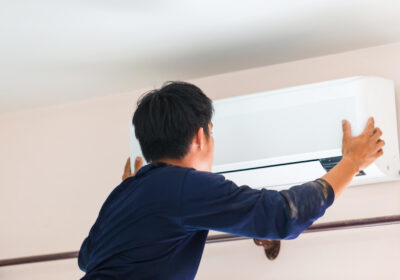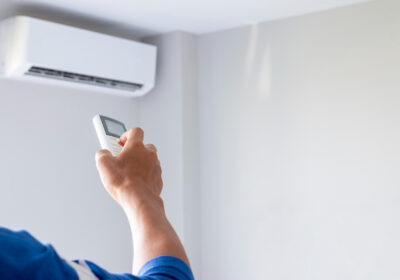What Causes Your Air Conditioner Unit to Freeze Up?
Most Americans have an air conditioner, but many homeowners overlook freeze-ups even though this is common. You need to have a unit you can rely on at all times. An AC freezes up if covered in a layer of ice internally or externally. Whereas you can easily notice external ice, you may find it difficult to notice internal frost until it creeps to the outside.
If you don’t solve the root cause of freeze-ups, you may suffer costly repairs in the long run. Regular maintenance can identify hidden problems and solve them before they escalate. Below are some of the causes of a frozen air conditioner.
Low Freon
Your AC’s evaporator coil contains Freon or refrigerant, a fluid that absorbs indoor heat and sends it outside. When the Freon amount is low, heat transfer reduces and causes the evaporator coils to freeze. Additionally, low Freon causes pressure in the unit to drop, then causes a decrease in temperature. The temperature may reduce below the freezing point and cause ice buildup.
If you are low on Freon, don’t try to recharge it yourself. Freon doesn’t reduce as the AC runs. Instead, it changes to liquid in the condenser. If you have a reduced level, you have a leakage. Contact an expert first to identify and fix the exact location of the leak. After that, you can have them professionally do a recharge for you.
Erroneous Fan and Thermostat Settings
The fan requires a high voltage to power and get the air to flow wherever it is necessary. Low voltage interferes with normal operations and causes moisture buildup. As a result, the moisture can freeze on AC components instead of flowing out with the air.
A thermostat switches the blower on or off to control the temperature. If a fault occurs in the thermostat, the AC may run continuously and cause the system to freeze.
Restricted or Reduced Airflow
Ideally, your AC should freely draw warm air from your house to maintain cool indoor air. Constant airflow ensures humidity doesn’t settle on the components. Restricted air in faulty units condenses and turns into ice. Various factors such as air duct blockages, dirty filters, or warm-air registers cause the airflow restriction. The right action is to contact an expert to identify and solve the root problem.
Blocked Evaporator Coil
Indoor air that travels in your ducts carries dust, blocked by the air filter. Still, some particles escape through the filters. The little dust that goes past the filters builds on the coil to form a dust blanket over time. The blanket traps the cold and insulates it. A combination of dust and moisture creates ice. The more moisture accumulates, the thicker the layer of ice gets.
Defective Blower
The blower fan draws warm air into the ducts then distributes cool air to your home. The heat transfer process stops when the fans or their components malfunction. If the AC continues to run in such a case, the water vapor around the coils will freeze up. A faulty blower can cause your AC to produce rattle sounds. So, remember to keep your ears open to any rattles when you run your AC.
Quick Freeze
The AC unit isn’t supposed to cool more than the AC differential — the difference between the temperature of air that gets in and goes out. Otherwise, the system will overcool itself. When such a scenario occurs, moisture forms and cools below freezing point to create ice.
The Baton Rouge Air Conditioning and Heating professionals are a phone call away whether you have frozen units or other AC problems. Our experts inspect units, diagnose AC issues, and recommend measures you can take to prevent repeated AC faults. Contact us today for excellent and reliable services.






Share This